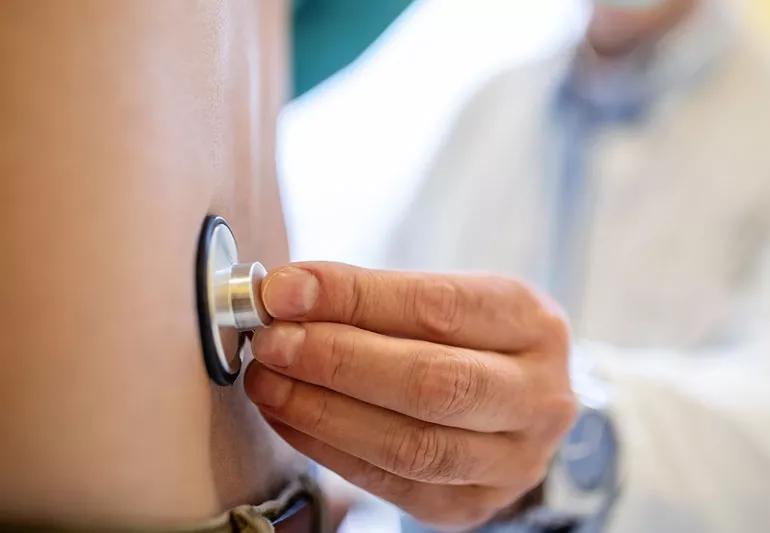This iconic medical tool has an enduring role

Image content: This image is available to view online.
View image online (https://assets.clevelandclinic.org/transform/d6a89f52-5ef8-456f-a1e0-18eb3aa74e7c/stethescopeUse-1204666787-770x533-1_jpg)
doctor using stethescope
The stethoscope has been around for nearly 200 years and is still draped across every physician’s neck or tucked into lab coat pockets. No other medical device can boast a longer life or more useful purpose.
Advertisement
Cleveland Clinic is a non-profit academic medical center. Advertising on our site helps support our mission. We do not endorse non-Cleveland Clinic products or services. Policy
But you may wonder what doctors are actually listening for when they place that cool metal cone against your chest. Cardiologist Umesh Khot, MD, lets us “listen in” on what your heart has to say.
“The most important assessment is whether it’s normal,” he says. “If the heart sound is normal, meaning that there’s a regular beat without any murmurs, that’s a pretty good sign of heart health.”
1. Irregular rhythm: “Sometimes you hear an extra beat, sometimes it’s a skipped beat or it can be bouncing all over,” says Dr. Khot. “We can’t tell what the problem is that’s causing it, but we can get a sense of whether it’s in rhythm.”
2. Heart “murmurs:” A murmur itself isn’t the problem; the abnormal sounds — “whooshing” noises that vary widely — indicate a potential problem. “These signify blood flow problems within the heart, usually a problem with the valves,” Dr. Khot says. “The pitch and where it is in the heart can tell us what the valve problem is. We do additional testing to find out if it’s significant or not.”
3. Signs of congestive heart failure: These sounds are picked up by listening to the heart and lungs for both abnormal heart function and fluid in the lungs.
No matter what physicians hear through a stethoscope, it’s not enough to make a diagnosis. But such exams usually prompt further testing to uncover the cause of abnormal or irregular heartbeats.
Advertisement
Even the tried-and-true stethoscope is evolving with technology:
Despite these recent developments, the traditional stethoscope, without all the bells and whistles, is an enduring part of practicing medicine, says Dr. Khot.
“There’s a lot of evidence that the findings on this exam are powerful in diagnosing how sick a patient is,” he says. “Within five or 10 minutes, you can get a quick sense of whether the person is sick and in need of emergency therapy to save their life.”
Advertisement

Sign up for our Health Essentials emails for expert guidance on nutrition, fitness, sleep, skin care and more.
Learn more about our editorial process.
Advertisement
Red flags include feeling unheard, unimportant or unwelcome in your provider’s office
Signs are what your provider can see, but symptoms are what you feel or experience
Screenings and tests done during a wellness check can uncover hidden health issues
An annual physical exam is important for many reasons, including your chance to ask questions
From odors to colors, it’s more than OK to ask your doctor these questions
Simple tips to make your visit more effective
It can offer you peace of mind and more information
Smart choices will take you far
Prioritize your health by managing stress, strengthening your social connections and getting quality sleep
Bolsters, blankets, pillows and blocks can offer extra support, stability and comfort
Allergies, postnasal drip, asthma or reflux could be to blame for a cough that won’t quit